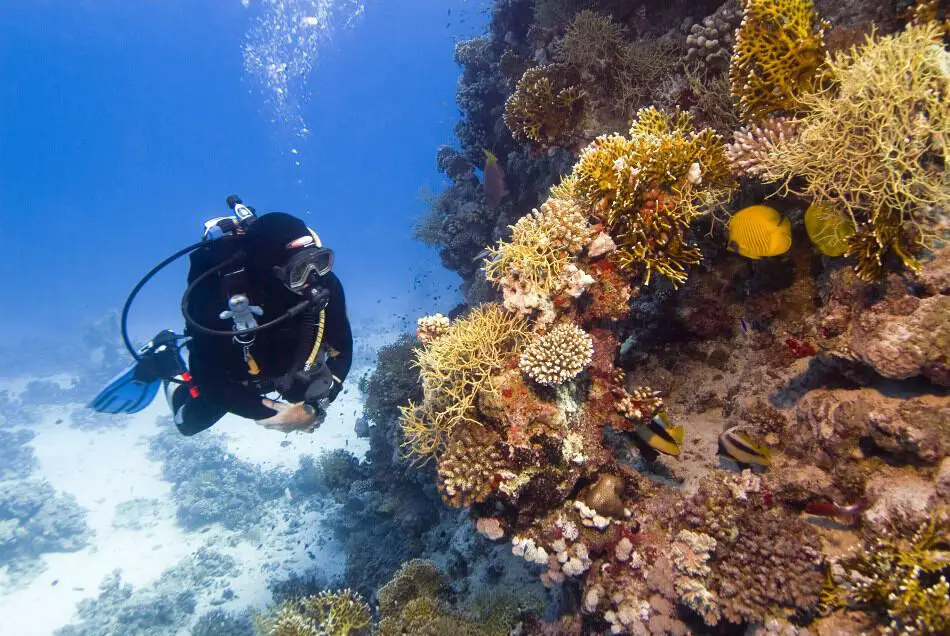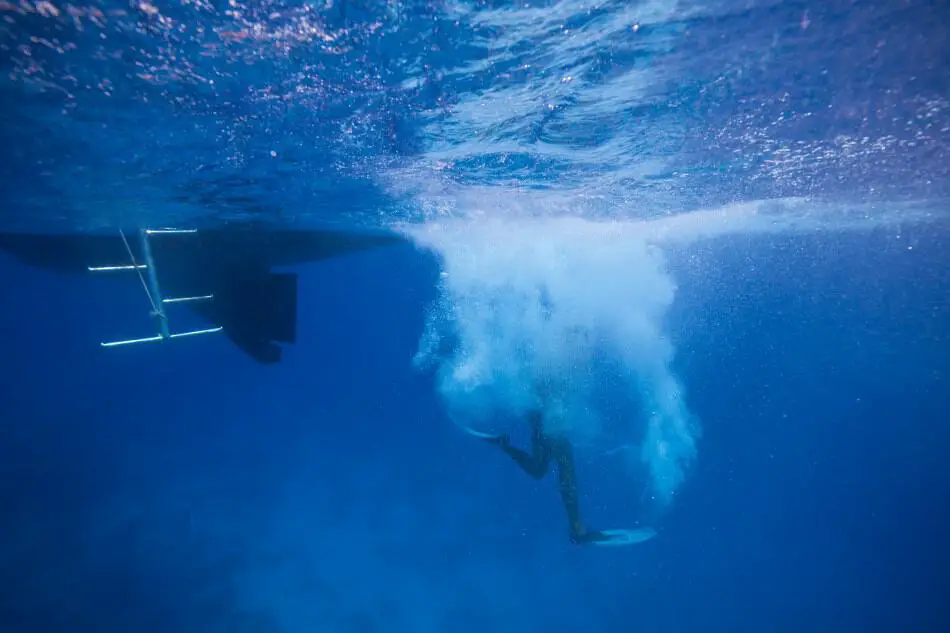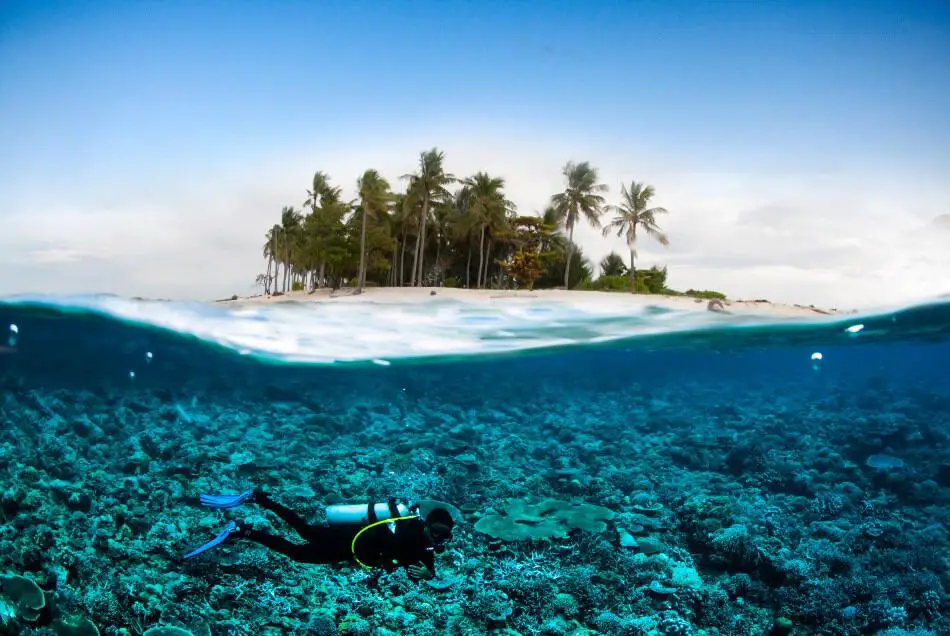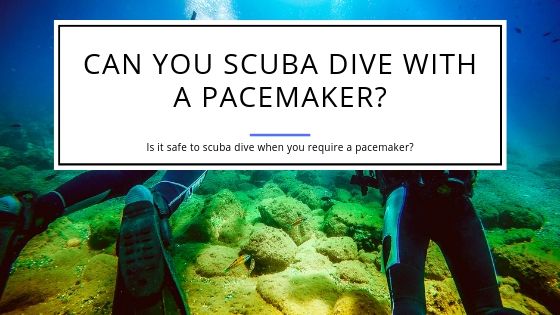Can You Scuba Dive with a Pacemaker?
A pacemaker is a battery-powered device used to stimulate heart muscle and regulate its rhythm. If you are a sport diver with a pacemaker and wondering if you’ll ever get to experience the adventures of scuba diving again, then you’re in the right place.
Can you scuba dive with a pacemaker? Yes, you can. With the caveat that you discuss your specific pacemaker and your scuba diving with your medical professional. You need to get clearance that your pacemaker can withstand the pressure and that there’s no risk for your health!
For a military or a commercial diver, a cardiac pacemaker is all it takes to disqualify them from this activity. However, as a sport diver, there still might be some hope left for you. In the past, the answer to the question “can I scuba dive with a pacemaker?” used to be an outright ‘No’. However, nowadays a new logical and defensive reasoning has been brought forward.
Is it Safe to Dive with a Pacemaker?
It is believed that every individual diver should be evaluated separately. Two essential factors need to be taken into account; the reason the diver is dependent on a pacemaker and the quality of the pacemaker being used. When evaluating quality, you need to know if it is capable of performing safely at depths during recreational activities like scuba diving. Let’s dive straight into these two approaches.
Why Is the Diver Dependent on a Pacemaker?
An individual can be dependent on a pacemaker for several different reasons.
Damaged heart muscle after a major heart attack may be one of the reasons for an individual to depend on a pacemaker. This may be an indication that they are not fit enough to safely perform activities in deep water.
On the other hand, a mild heart attack doesn’t cause much damage to the heart muscle. However, the heart’s conduction system that is responsible for sending signals to contract the heart muscle remains unreliable after the attack; this makes using a pacemaker necessary.
Arrhythmias (heart rhythm disorders) and cardiac conduction abnormalities can be the other reason. In this case, the portion of the heart responsible for generating the electrical impulse might not function properly or consistently.
Sometimes, the circuitry that sends the electrical impulse to the heart becomes defective and the conducted signals are not regular or proper. If an individual doesn’t use a pacemaker, they may go through syncopal episodes i.e. the blood flow to the brain drops temporarily causing unconsciousness and loss of muscle control.

Do You Have to Get Clearance From Your Doctor to Dive with a Pacemaker?
If your cardiologist confirms that you can safely dive with your heart conditions and your pacemaker is rated to function at 130-foot sea water or higher pressures then you may be considered fit for scuba diving. However, consulting a doctor is highly recommended in this case.
Are There Specific Pacemakers for Scuba Diving?
Once your cardiologist gives you a pass to scuba dive while keeping your heart condition in mind, it is necessary that you have a pacemaker that is suitable for the hefty task.
A cardiac pacemaker is situated under the skin of an individual. During recreational diving, it gets exposed to the same extreme depths as the diver. Therefore, a suitable pacemaker would be the one that can perform under a depth of at least 130 ft/40m and must be able to tolerate the rapidly fluctuating pressures.
Medtronic pacemakers are believed to be built to stand up to 180 feet of depth whereas manufacturers like St. Jude Medical claim that their pacemakers are suitable for exposure up to pressures of 7 atmospheres or the equivalent depth of 198 feet of saltwater.

Does Scuba Diving Strain Your Heart?
Scuba diving is an activity that exposes you to effects like immersion in water, loss of heat, increased pressure, a lot of exertion, and stressful conditions. When you exercise and your heart rate increases, a healthy heart ensures your safety while a diseased heart is not capable of providing enough support to your system. Here is how scuba diving strains your heart:
Immersion in Water
When your body is immersed in deep water, it gets exposed to a pressure gradient. This causes the blood from the vessels in your legs to move to the vessels in your chest cavity, increasing the volume of the blood in your chest by up to 700ml. As a result, the blood in your heart increases by about 180ml to 240ml and thus, all its four chambers get expanded. All of this causes the pressure in your right atrium to rise along with a 30% escalation in cardiac output and a slight elevation in your overall blood pressure.
Loss of Heat
Water is known to have high thermal conductivity. With the same temperature under water and in dry air, the latter would feel more comfortable to you. When you immerse yourself in water, your body tends to lose more heat than usual.
During the loss of heat, your body goes through a condition known as peripheral vasoconstriction which means the narrowing or constriction of the blood vessels that supply your extremities. This consequently increases the blood in your heart putting extra pressure on its right side, making it pump more blood. As the arteries are constricted, it decreases the blood flow to your body and thus raises your overall blood pressure.
Increased Pressure
During scuba diving, you breathe air under increased pressure, greatly affecting your cardiac and circulatory systems. The levels of oxygen escalate which again causes vasoconstriction, increases blood pressure, and decreases your pulse rate and cardiac output.
When you exercise during recreational diving, pulmonary ventilation might get reduced because of dense gases. The levels of carbon dioxide may increase which can cause the blood to flow with more speed to your brain and can be toxic for you.
Stressful Effects
The autonomic nervous system (ANS) in your body is responsible for controlling the functions of the body that are not consciously directed, such as your heart rate, breathing, and digestion. These functions are affected by scuba diving too. ANS is divided into two divisions, one is sympathetic that is associated with fight-or-flight responses and the other is parasympathetic which governs resting and energy-conservation functions.
When your heart is healthy and you scuba dive, the parasympathetic effects increase, preserving your pulse rate. While diving with a diseased heart, the sympathetic responses come into action. The dive becomes stressful and the pulse rate increases, increasing the risk of arrhythmia.
Scuba diving usually takes place in an isolated area where there aren’t any facilities available to provide any cardiac assistance. While the factors determining each individual’s qualification differs greatly, divers with severe cardiovascular diseases are discouraged from participating in such vigorous activities.

Can an Implanted Pacemaker Get Damaged from the Pressure Underwater?
There is insufficient data present on the tolerance of heart pacemakers during scuba diving. Therefore, Lafay V conducted a study called “Effects of Hyperbaric Exposures on Cardiac Pacemakers”. This research aimed was to find out the electronic and mechanical tolerance of cardiac pacemakers that are susceptible to the pressures experienced during recreational diving.
They found out that cardiac pacemakers that were exposed to a pressure of 30msw (approximately 98 feet of depth) didn’t have any noticeable electronic dysfunctions; only a temporary increase in the pacing rate was observed during pressurization. The same pacemakers were exposed to a pressure of 60msw (approximately 196 feet of depth) a month later and these were found to be deformed.
Although the tests weren’t conducted with implanted pacemakers, it is advised that implanted pacemaker patients shouldn’t expose themselves to hyperbaric pressure of more than 30msw because of the potential risks involved.

